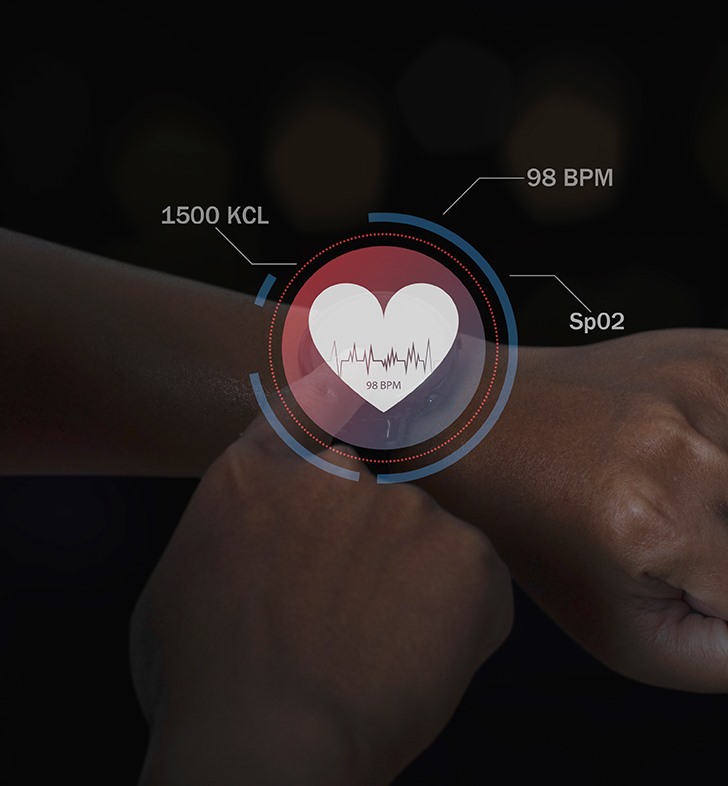
Atrial Flutter
What is atrial flutter? Atrial flutter is a type of supraventricular arrhythmia. This means it’s an abnormal heart rhythm that starts in the upper chambers of your heart. With atrial flutter, your heart beats in a fast but consistent pattern. A normal heart rate is 60 to 100 beats a minute when you’re at rest. Atrial flutter can make your heart’s upper chambers beat 250 to 350 times a minute. This causes your lower chambers to beat fast as a response, commonly as fast as 150 beats a minute or more. Atrial flutter is like an assembly line with the speed set too fast at the line’s first station. Your heart’s chambers can’t fill with blood fast enough because the contractions are too frequent. Also, there isn’t enough time for your atria (upper chambers) to empty all their blood into your ventricles in the lower part of your heart. This causes your heart to pump less blood to your body than normal.
Atrial flutter types Typical (most common type): Abnormal electrical signals go in a counterclockwise circle in your right atrium. Reverse typical: Abnormal electrical signals move in a clockwise direction in your right atrium. Atypical (not common unless you’ve had heart surgery or ablations before): Abnormal electrical signals can happen in your left or right atrium. A provider can tell which type of atrial flutter you have based on your electrocardiogram (EKG) results.
How does atrial flutter affect my body? When you have atrial flutter, your heart isn’t working as efficiently as it should. Blood clots could form, which could cause a stroke or heart attack. The fast pulse from atrial flutter can weaken your heart muscle. When your heart beats too quickly, your heart ventricles can’t fill with blood. Your heart pumps less blood, which can make your blood pressure drop and cause heart failure.
What are the symptoms?
Some people don’t have symptoms of
atrial flutter. For others, symptoms include:
- Shortness of breath.
- Dizziness.
- Lack of energy.
- Heart palpitations.
- Fast pulse.
- Chest pain.
- Passing out.
- Lightheadedness.
What are the complications of atrial
flutter?
Complications may include:
- Fast heart rate.
- Cardiomyopathy.
- Blood clots that can travel and
cause a heart attack or stroke.
- Congestive heart failure.
What causes atrial flutter?
Electrical signals that are too
frequent cause atrial flutter, making the upper chambers of your heart contract
(pump) too often.
Causes of atrial flutter include:
- Heart valve disorders.
-Heart condition present at birth.
- Coronary artery disease.
- High blood pressure.
- Overactive thyroid.
What are the risk factors for atrial
flutter?
You’re at a higher risk of atrial
flutter if you’re older, assigned male at birth or you have:
- Other heart issues, like heart
failure or a valve issue.
- High blood pressure.
- A thyroid issue.
- Diabetes.
- Lung disease.
- A medical history that includes
alcohol use disorder.
- Obstructive sleep apnea.
- Obesity.
How is atrial flutter diagnosed?
A provider may use tests to diagnose
atrial flutter, including:
- Electrocardiogram (ECG or EKG).
- Echocardiogram.
- Blood tests.
- Pulmonary (lung) function tests.
How is atrial flutter treated?
Medicines work well for many people
with atrial flutter. Any medicine can have side effects, but the benefits
usually are greater than the risks. When medicines don’t work, your provider
may recommend a procedure that can help.
Medications
Medicines for the treatment of
atrial flutter include:
Medicines to slow down your heart
rate: Calcium channel blockers and beta-blockers.
Medicines to stop the abnormal
rhythm: Antiarrhythmic drugs.
Procedures
Procedures to treat atrial flutter
include:
- Cardioversion via electrical shock.
- Catheter ablation, a procedure a
provider can use to destroy the tissue that’s creating abnormal signals.
- Temporary change in your pacemaker
or implantable cardioverter defibrillator (ICD) setting.
- Complications of the treatment
Rarely, you can have complications
from an ablation, including:
- Infection.
- Bleeding.
- Injury to a blood vessel.